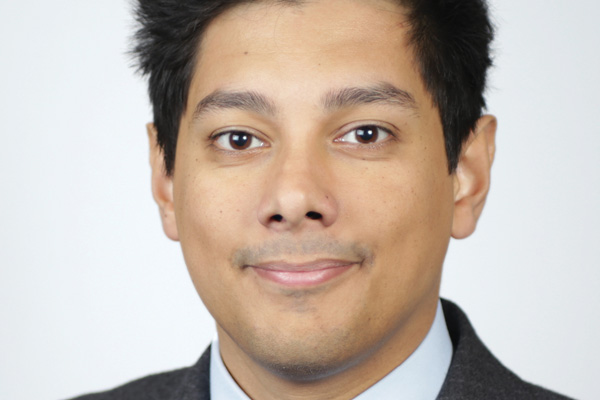A GP trainee currently working in A&E has been caught up in a row over doctors’ duty to speak up when concerned about patient safety.
Dr Adrian Harrop has taken to Twitter since the start of the month to give a day-by-day account of how winter pressures is affecting patient care at the emergency department of Scarborough Hospital.
Dr Harrop also spoke to BBC News and the Observer, but says he was subsequently told off by colleagues for speaking to the media without referring to the hospital trust’s press office.
However, Scarborough Hospital disputes these claims, saying ‘no member of staff would ever be threatened with any form of disciplinary action’ for raising concerns, adding they are fully supportive of such actions.
According to Dr Harrop, the A&E department should have declared a major incident due to the long waits patients were facing, and the inability of A&E staff to complete the handover of patients from paramedic teams.
But he claims a culture of not wanting to be seen by NHS England to be failing stopped hospital managers from speaking up about the conditions.
Dr Harrop told Pulse: ‘Every day, being an outspoken person, I would raise these concerns with the consultants and to the senior nurse on the shop floor.’
But he claimed that they were ‘unwilling to escalate things to their seniors because they feel that once they have escalated it, they are admitting failure’.
He said: ‘I think this is a major problem in the health service, among nursing staff and managerial teams… This is a very negative, counterproductive culture.’
Dr Harrop said that he was told by the consultant in his department, ‘do not speak to the media again’, or it could ‘put us both into a very difficult position’.
He also referred to comments made by Mike Proctor, deputy chief executive at York Teaching Hospital NHS Foundation Trust, to BBC News.
Speaking on the programme, Mr Proctor said the hospital did not need to declare a major incident because plans were in place to deal with the crisis, including the planned cancellation of non-urgent operations.
Regarding Dr Harrop’s decision to tell the media about his patient safety concerns, Mr Proctor said: ‘I think what we have advised, and what colleagues have advised, is to talk to our communications department before you do things like that.’
Further, when asked whether Dr Harrop would ‘keep his job’, Mr Proctor said he was ‘sure he will’.
The trust to which Scarborough Hospital belongs claimed Dr Harrop had not raised concerns internally, and said he had not been threatened with any repercussions for speaking to the media.
A York Teaching Hospital NHS FT spokesperson said: ‘Dr Harrop has made a number of claims on social media over the past few weeks, and it is difficult to respond to such claims when he has not raised his concerns in any other way with the organisation.
‘No member of staff would ever be threatened with any form of disciplinary action for raising concerns about patients or colleagues, and we actively support staff in doing so.’
According to the spokesperson: ‘The organisation’s press office exists to facilitate a relationship between the trust, its staff, and the media’ but its ‘role is not to prevent staff speaking directly to the media’.
The row comes as winter pressures forced NHS England to advise hospitals to cancel non-urgent elective care for the whole of January in a bid to free up staff to deal with emergencies.
MPs have urged the Government to stump up extra funding to restore services, however despite being forced to apologise to patients, ministers have said the NHS’s winter plan is working.
Dr Jeeves Wijesuriya, BMA junior doctors committee chair, said: ‘As hospitals face one of the toughest winters on record, with tens of thousands of operations postponed, patients waiting too long in the back of ambulances and stark warnings of people dying on trolleys in hospital corridors, doctors must feel confident that they can come forward when they see something that they think is putting safety at risk. Indeed, it is a doctor’s professional duty to raise such concerns, and to do so in the correct way.’
What is the process for raising patient safety concerns?

31 dr wijesuriya jeeves power50 2017 31
BMA’s junior doctors committee chair Dr Jeeves Wijesuriya says: ‘The GMC provides step-by-step guidance on the way to go about reporting safety issues; the first port of call should always be your manager or senior officer inside your organisation and there are number of avenues that can be explored – including speaking with the regulator itself.
‘The BMA is on hand to offer support and advice through every step of the process.
‘While doctors may fear repercussions as a result of raising concerns, those who do so are protected by law.
‘Further, if junior doctors feel excessive hours, lack of breaks and inadequate support are putting patients in danger, it is imperative that they raise this effectively using the exception reporting process.’
Pulse October survey
Take our July 2025 survey to potentially win £1.000 worth of tokens











